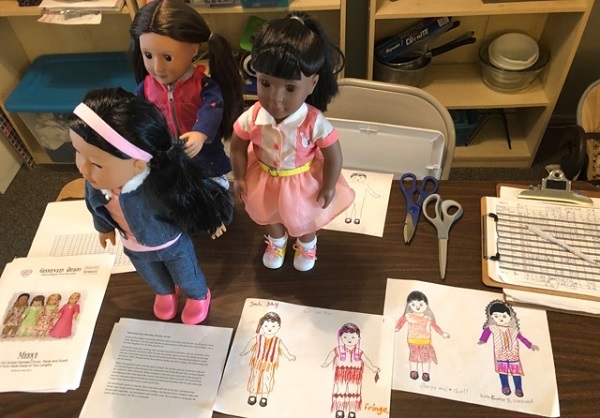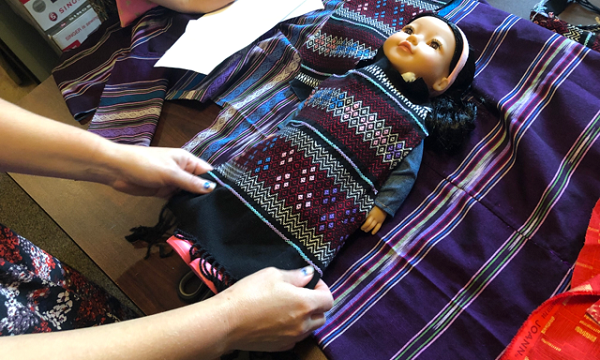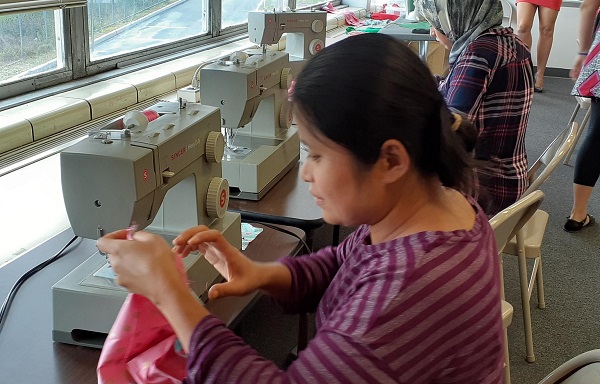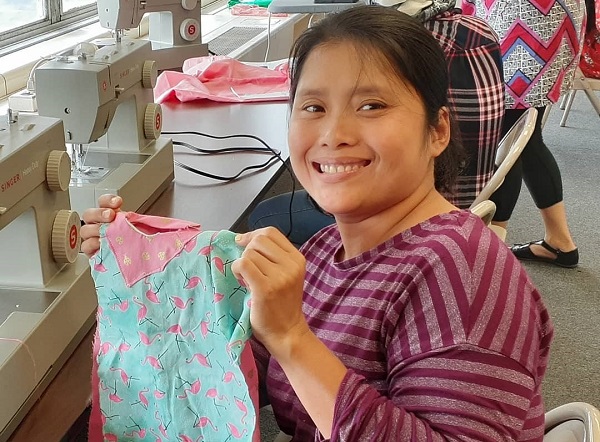
We’re All Neighbors doll collection now reflects the diversity of Whitehall Library’s community
Say hello to Paw Lah Moe, Mursal, Fatma, Asma Al-Abbasi, Kongya and Rita.
They are a new collection of dolls that represent Nepal, Morocco, South Sudan, Afghanistan, Turkey, and the Karen State of Myanmar. And they are available at Whitehall Public Library where the toy selection is now more culturally diverse.
While many Pittsburgh libraries lend dolls to their young patrons, those dolls didn’t necessarily represent the diversity of their neighborhoods.
The project came about through guidance from Mary Tremonte, an artist in residence with Literacy Pittsburgh from the Office of Public Art.
First came the purchase of Our Generation dolls, with a range of skin tones and hair colors, through a grant from the Jefferson Regional Foundation. Them, immigrant and refugee women, students at Literacy Pittsburgh, sewed miniature clothing using textiles from their homelands. They named the dolls and wrote short biographies about them, highlighting favorite foods, holidays and traditions. A list of vocabulary words was generated to accompany each doll, giving children a lesson in a foreign language.
Six of the dolls from the We’re All Neighbors Collection will eventually circulate at the library, where kids can borrow them for up to one week. Another six dolls will occupy Literacy Pittsburgh’s early childhood education room.
Library director Paula Kelly was inspired to tackle the project after reading about a similar program at South Fayette Township Library. A lifelong Whitehall resident, she watched the community become a melting pot of different ethnicities and wanted to the dolls to reflect that growth.
She reached out to Literacy Pittsburgh, a longtime library partner, for help. Program manager Caitlin Griffiths — and her students — were happy to oblige. “They got to tell their stories through the clothing,” Griffiths says.
The project was such a hit, Kelly and Griffiths hope to create more dolls, including boys, to make it even more inclusive.
For now, the pair are planning a children’s tea party where the dolls will make their debut.
The Family Literacy Program, based at Wallace School in the Baldwin-Whitehall School District, serves approximately 35 immigrant and refugee families a year. The families want to improve their English language and parenting skills, obtain their citizenship or GED and gain knowledge of American culture.


